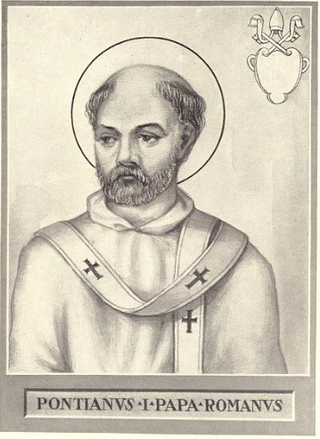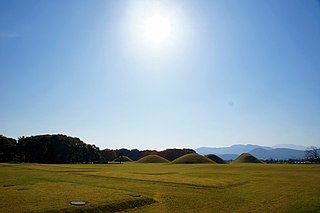AD 24 (XXIV) was a leap year starting on Saturday of the Julian calendar. At the time, it was known as the Year of the Consulship of Cethegus and Varro. The denomination AD 24 for this year has been used since the early medieval period, when the Anno Domini calendar era became the prevalent method in Europe for naming years.
AD 57 (LVII) was a common year starting on Saturday of the Julian calendar. At the time, it was known as the Year of the Consulship of Caesar and Piso. The denomination AD 57 for this year has been used since the early medieval period, when the Anno Domini calendar era became the prevalent method in Europe for naming years.

AD 80 (LXXX) was a leap year starting on Saturday of the Julian calendar. At the time, it was known as the Year of the Consulship of Augustus and Domitianus. The denomination AD 80 for this year has been used since the early medieval period, when the Anno Domini calendar era became the prevalent method in Europe for naming years.

The 130s was a decade that ran from January 1, 130, to December 31, 139.
Year 112 (CXII) was a leap year starting on Thursday of the Julian calendar. At the time, it was known as the Year of the Consulship of Traianus and Cornelius. The denomination 112 for this year has been used since the early medieval period, when the Anno Domini calendar era became the prevalent method in Europe for naming years.

Year 780 (DCCLXXX) was a leap year starting on Saturday of the Julian calendar, the 780th year of the Common Era (CE) and Anno Domini (AD) designations, the 780th year of the 1st millennium, the 80th year of the 8th century, and the 1st year of the 780s decade. The denomination 780 for this year has been used since the early medieval period, when the Anno Domini calendar era became the prevalent method in Europe for naming years.
Year 154 (CLIV) was a common year starting on Monday of the Julian calendar. At the time, it was known as the Year of the Consulship of Aurelius and Lateranus. The denomination 154 for this year has been used since the early medieval period, when the Anno Domini calendar era became the prevalent method in Europe for naming years.

Year 458 (CDLVIII) was a common year starting on Wednesday of the Julian calendar. At the time, it was known as the Year of the Consulship of Maiorianus and Leo. The denomination 458 for this year has been used since the early medieval period, when the Anno Domini calendar era became the prevalent method in Europe for naming years.
Year 479 (CDLXXIX) was a common year starting on Monday of the Julian calendar. At the time, it was known as the Year of the Consulship of Zeno without colleague. The denomination 479 for this year has been used since the early medieval period, when the Anno Domini calendar era became the prevalent method in Europe for naming years.

Year 230 (CCXXX) was a common year starting on Friday of the Julian calendar. At the time, it was known as the Year of the Consulship of Agricola and Clementinus. The denomination 230 for this year has been used since the early medieval period, when the Anno Domini calendar era became the prevalent method in Europe for naming years.

Year 654 (DCLIV) was a common year starting on Wednesday of the Julian calendar. The denomination 654 for this year has been used since the early medieval period, when the Anno Domini calendar era became the prevalent method in Europe for naming years.
Year 298 (CCXCVIII) was a common year starting on Saturday of the Julian calendar. At the time, it was known as the Year of the Consulship of Faustus and Gallus. The denomination 298 for this year has been used since the early medieval period, when the Anno Domini calendar era became the prevalent method in Europe for naming years.

Year 261 (CCLXI) was a common year starting on Tuesday of the Julian calendar. At the time, it was known as the Year of the Consulship of Gallienus and Taurus. The denomination 261 for this year has been used since the early medieval period, when the Anno Domini calendar era became the prevalent method in Europe for naming years.
Year 196 (CXCVI) was a leap year starting on Thursday of the Julian calendar. At the time, it was known as the Year of the Consulship of Dexter and Messalla. The denomination 196 for this year has been used since the early medieval period, when the Anno Domini calendar era became the prevalent method in Europe for naming years.
Year 4 BC was a common year starting on Tuesday or Wednesday of the Julian calendar and a common year starting on Monday of the Proleptic Julian calendar. At the time, it was known as the Year of the Consulship of Sabinus and Rufus. The denomination 4 BC for this year has been used since the early medieval period, when the Anno Domini calendar era became the prevalent method in Europe for naming years.

Pasa of Silla was the fifth ruler of Silla, one of the Three Kingdoms of Korea. He is commonly called Pasa Isageum, isageum being the royal title in early Silla. As a descendant of Silla's founder Hyeokgeose, his surname was Bak.
Jima was the sixth ruler of Silla, one of the Three Kingdoms of Korea. He is commonly called Jima Isageum, isageum being the royal title in early Silla. As a descendant of Silla's founder Hyeokgeose, his surname was Bak.
Adalla was the eighth ruler of Silla, one of the Three Kingdoms of Korea. He is commonly called Adalla Isageum, isageum being the royal title in early Silla. As a descendant of Silla's founder Hyeokgeose, his surname was Bak.







